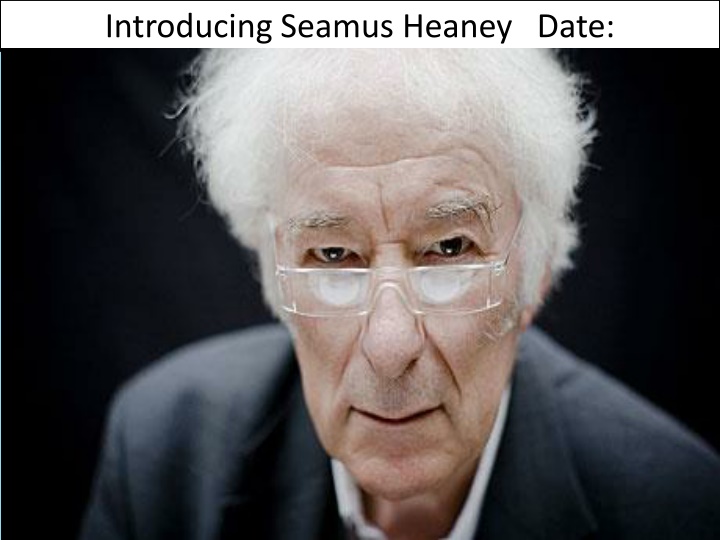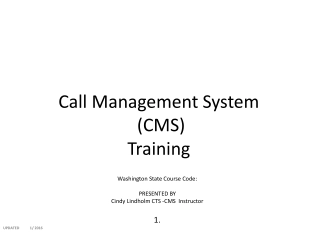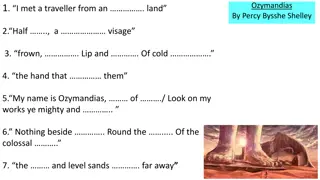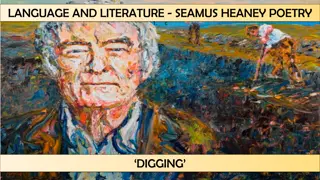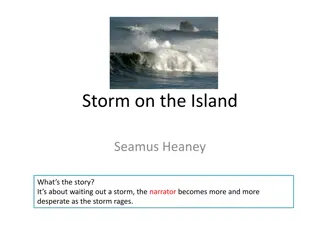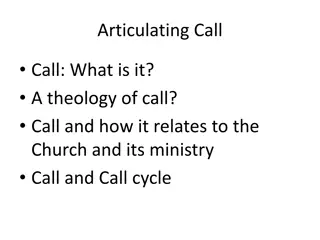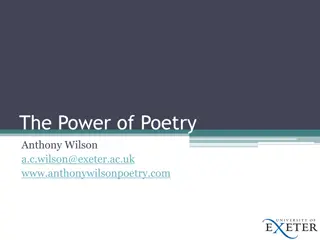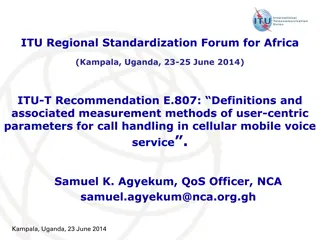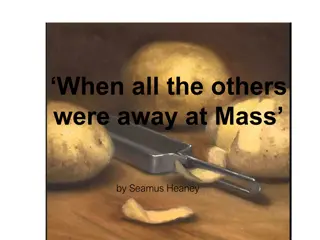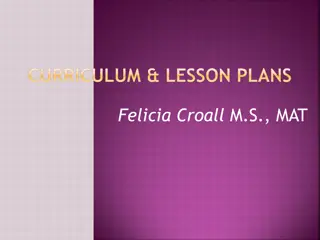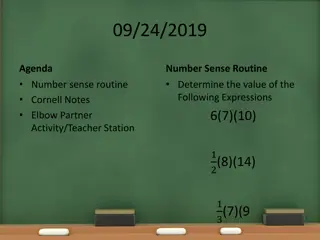Annotating Seamus Heaney's Poem "A Call" on Love, Death, and Regret
Seamus Heaney's poem "A Call" delves into the themes of love, death, and regret through a phone call with his father. He muses on life, mortality, and the familial bond, capturing the ordinary yet profound moments of human connection. The irregular stanzas and absence of rhyme scheme add to the raw and authentic portrayal of a reflective conversation. Through simple language and everyday speech, Heaney transforms a mundane event into a poignant exploration of existential questions and emotions.
Download Presentation

Please find below an Image/Link to download the presentation.
The content on the website is provided AS IS for your information and personal use only. It may not be sold, licensed, or shared on other websites without obtaining consent from the author.If you encounter any issues during the download, it is possible that the publisher has removed the file from their server.
You are allowed to download the files provided on this website for personal or commercial use, subject to the condition that they are used lawfully. All files are the property of their respective owners.
The content on the website is provided AS IS for your information and personal use only. It may not be sold, licensed, or shared on other websites without obtaining consent from the author.
E N D
Presentation Transcript
Seamus Heaney: A Call Date: Objectives: Introduce and annotate the poem Explore the themes of Love, Death and Regret. 1. 2. Warm up: Perform one of the following two tasks: 1. What do you remember from Junior Cert Poetry about Seamus Heaney: Mid-term Break, Follower, Digging? Write it down. 2. Describe an ordinary phone call you might have with a loved one. Write about it 2-3 lines.
Introducing Seamus Heaney Date: Heaney describes his father as the typical Irish rural farmer. What do you think this means. Physical, mental, social, financial.
Context for Heaney He grew up a Catholic in Northern Ireland in the 1940 s. Tension between Catholics and Protestants shaped his life. When he was starting to write, things started getting extremely violent in the North. He saw it as his duty to try to help by telling people what s really important (love, family, nature, peace etc)
Context for this poem. Heaney is taking a common event (more common before mobile phones) and turning it into a symbol. As he calls his father and waits for him to come to the phone, he thinks about the mystery of death and its effects on those who remain.
A Call by Seamus Heaney Hold on, she said, I ll just run out and get him. The weather here s so good, he took the chance To do a bit of weeding. So I saw him Down on his hands and knees beside the leek rig, Touching, inspecting, separating one Stalk from the other, gently pulling up Everything not tapered, frail and leafless, Pleased to feel each little weed-root break, But rueful also . . . Then found myself listening to The amplified grave ticking of hall clocks Where the phone lay unattended in a calm Of mirror glass and sunstruck pendulums . . . And found myself then thinking: if it were nowadays, This is how Death would summon Everyman. Next thing he spoke and I nearly said I loved him.
Notes Form There are irregular stanzas. The layout and absence of rhyme make it more like reading a text or a description of an everyday, ordinary experience. What are the advantages of using everyday speech here instead of fancy rhymes?
Notes line 1-3 The poem describes a once common experience: a caller waiting for a loved one to come to the phone. The speaker is calling for his father and it seems like we are overhearing or eavesdropping on this. (Does he ever use the word father here? Why do I believe it is?)
Notes Lines 4-10 We move from the lady s voice to the poet s after a line break. He imagines the loved one on his knees, humbly working with nature. The speaker clearly knows and loves the man. He is able to imagine with detail what the man is doing. He even knows the man is rueful or sad about destroying weeds. How many people do you know so well, you can imagine what they might be doing this very moment?
Notes Lines 11-14 The poet is back to reality, where he can hear the empty hallway on the other end of the phone. The silence, the absence of people or life and the clock (time as inescapable death) darken the poets mood. Has anyone ever seen an old grandfather clock?
Notes Lines 15-16 The poet imagines himself as a character in a medieval play called Everyman . In this play, God sends Death to collect a man so an account of his life may be given. This is very different from the beginning of the poem. (What do you think an account of a life would look like?)
Notes Lines 17 The final line is separated from the poem to increase tension and conveys the relief of the narrator. The word nearly might show a lack of communication or that one things need not be said.
Questions: Remember quotes. 1. What image of the father does the poet convey? (What is he like?) PQE 2. Describe the hallway in the poem. How does the poet link this hallway and death? PQE 3. In your opinion, is the poem stronger or weaker for not having an open declaration of love in the final line? PQE (Quote the final line)
